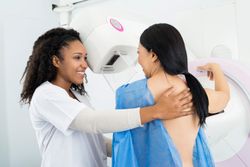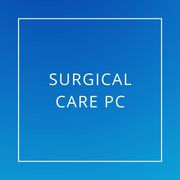
Breast cancer is an unfortunately common disease, with one out of every eight women receiving a diagnosis. However, thanks to advances in research and technological development, it’s now more treatable than ever. For more information on risk factors, treatment, and prevention, consult the guide below.
What Are the Risk Factors?
Many factors contribute to the development of breast cancer. Age is often a deciding element, with most cases occurring in women after age 50.
Women with more connective tissue than fatty tissue have denser breasts, increasing the potential of developing cancer. High density also makes detection through a mammogram more difficult.
Those with a family history or mutations of the BRCA1 and BRCA2 genes are at an elevated risk. So are women who have been treated for the condition previously.
What Are the Early Signs?
 As cancer grows, it alters the nipple and skin around the breast. Consult a doctor if there are noticeable changes, including a rash or an inversion of the nipple. Look for signs of dimpling of the nipple or the surrounding skin.
As cancer grows, it alters the nipple and skin around the breast. Consult a doctor if there are noticeable changes, including a rash or an inversion of the nipple. Look for signs of dimpling of the nipple or the surrounding skin.
Breast swelling during menstruation is normal. However, swelling, tenderness, or discoloration should not last over a week.
Nipple discharge isn’t a prevalent symptom of breast cancer, but it should be monitored, especially if the discharge is limited to one breast. A discharge that is bloody or clear could be a sign of an abnormality.
How Is It Prevented & Treated?
There is no way to prevent breast cancer completely, but the risk can be minimized. Since fat cells make estrogen, having an excess of them increases your exposure and risk of cancer forming. Maintaining a healthy diet and weight, especially after menopause, will decrease the risk.
Women with dense breasts should stick to a consistent screening regimen, including monthly self-exams and yearly tests by a doctor.
Digital mammograms after 40 are also recommended, as they are more reliable and detailed than film.
There are various surgeries to treat different forms of breast cancer. In these surgeries, doctors will remove the entire tumor. They’ll also remove a small section of healthy tissue around it. This prevents microscopic cancer cells from getting left behind, decreasing the chances of recurrence.
Surgical options are also available for larger or more advanced cancers. Doctors will use neoadjuvant therapy or chemotherapy before surgery. These treatments will reduce the size of the tumor, making the procedure simpler.
Treating breast cancer with surgery allows for more positive outcomes and a higher survival rate. If you’re in the Lincoln, NE, area, reach out to Surgical Care PC. With over 30 years of experience, Dr. Rick Windle has provided both minimally invasive and advanced procedures to remove cancerous growths while limiting the changes to the breast itself. For more information on his surgical options, visit his website. To schedule an appointment, call (402) 476-6626.
About the Business
Have a question? Ask the experts!
Send your question

